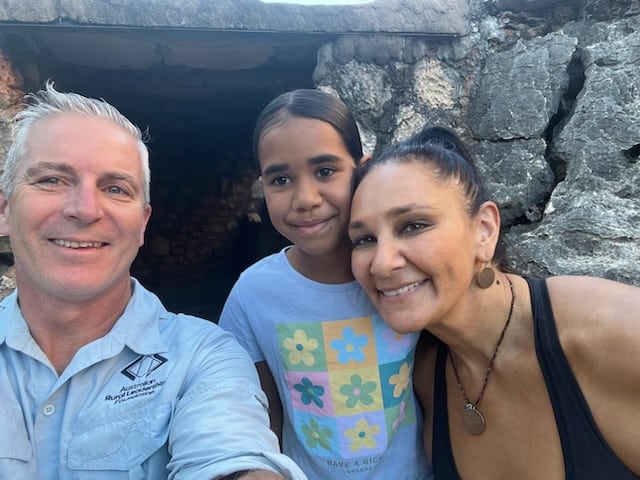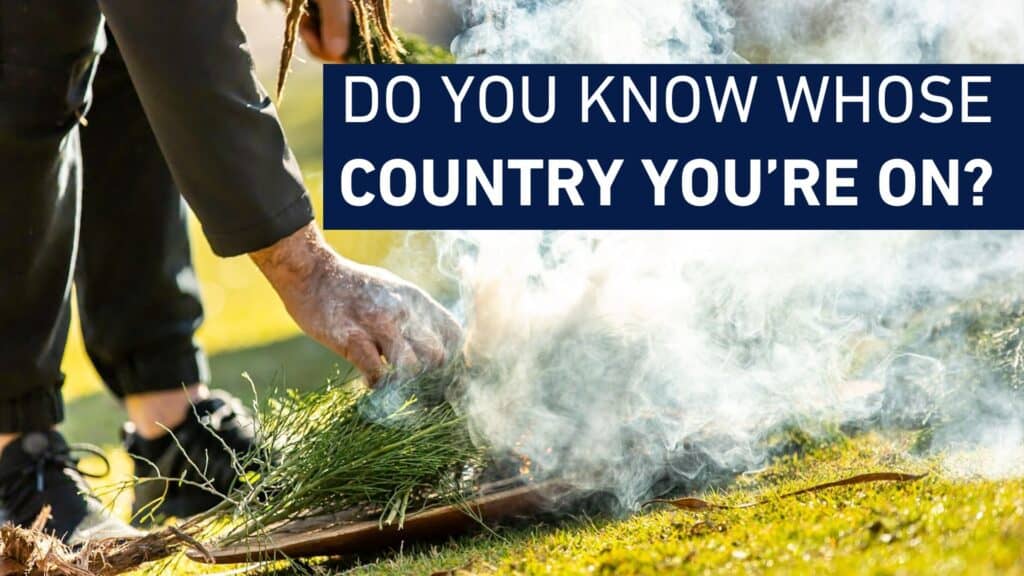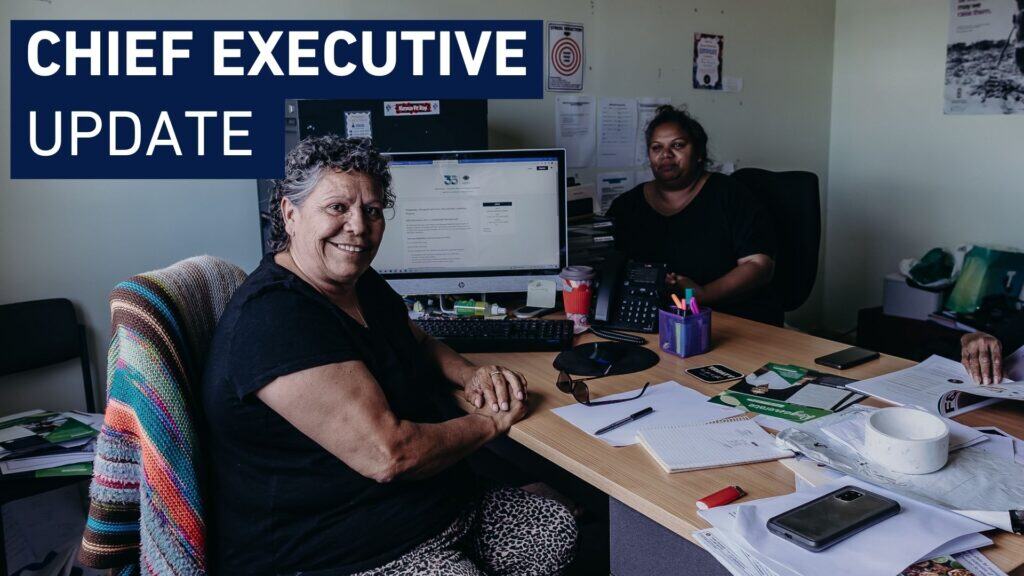Last week I accompanied Board Member Melissa Fletcher on a trip to Gooniyandi country located in the central Kimberley region of Western Australia to meet with the Mimbi and Galeru communities, in particular esteemed elders and ARLF Honorary Fellows Rosemary Nugget and Marion Dolby.
Gooniyandi country extends from Fitzroy Crossing to the vicinity of Margaret River Station in the east, north to the King Leopold ranges and south towards the Great Sandy Desert. It covers a varied landscape from limestone ranges to floodplains. It includes Birndiwa (Mt Huxley), Mimbi (Mimbi Caves), Maanyjoowa (Margaret Gorge), sections of Margaret River, Louisa River, Mary River and Christmas Creek, as well as many smaller creeks and billabongs such as Jiliyardi (Jiliyardie Waterhole) and Goorri (Coorie Billabong).
If you were part of the Australian Rural Leadership Program (ARLP) Course 1-29 you’ll know this area and its First Nation’s people well. For those not familiar let me explain. The ARLF has had the privilege of immersing ARLP participants on Gooniyandi country for 29 years with the aim of developing a deeper appreciation of their culture, their connection to this country and the challenges they face.
With Session 1 of Course 30 of the ARLP taking place on Wodi Wodi Country of the Dharawal people the purpose of this visit was to gain an understanding of what the next chapter in our long-standing and valued relationship with the Mimbi and Galeru communities would look like. It was powerful to sit and listen as an important first step in shaping our future connection.
Next, we will reach out to ARLP Course 1-29 Fellows to identify ways you can support this next chapter.
While in Western Australia, I also had the pleasure of connecting with many of our alumni at events in Perth and Kununurra. We recognise the significance of engaging with alumni and learning about your experiences of contribution, growth, and even challenges and failures. This is critical for the organisation as it endeavour’s to gain a comprehensive understanding of the impact of good leadership practices and, consequently, to ensure continued support for our work towards developing leadership in rural, regional, and remote Australia.
As our alumni network continues to grow (over 2,500 people now), it is also important that our alumni can easily connect with each other and where possible work collectively with us to contribute to the challenges facing rural, regional and remote Australia. We will share more about these opportunities throughout the year and hope that you can contribute in some way.
It’s been a pleasure to be part of many ‘Cuppa Tea at 3’ conversations with alumni recently. Primarily these Cuppa’s have been designed to allow each cohort of each previous ARLF Program to get together, connect and share stories. We also share what is happening at the ARLF and how we can connect and collaborate in future. The term ‘getting comfortable with being uncomfortable’ has been shared as part of people’s lived leadership experience – mostly in all seriousness and sometimes in jest as graduates recalled their program experience!
This gave me pause to reflect on why getting more comfortable with being uncomfortable is so important in leadership and why it is a core part of our experiential learning approach.
In a constantly changing context, people must be able to adapt and navigate through uncertainty, ambiguity, and challenge. This requires the ability to embrace discomfort and to not shy away from difficult conversations or situations. From a leadership practice perspective, being comfortable with the uncomfortable means being to step outside comfort zones, to take risks and understanding that failure is a natural part of learning.
Those who are comfortable with the uncomfortable also understand the importance of vulnerability, are not afraid to reveal it to others or admit when they don’t have all the answers. Vitally being comfortable being uncomfortable also means extending leadership practice to lead in different ways and in different contexts.
Each of us has our own unique approach to leadership that aligns with our strengths and preferred behaviours. However, what occurs when we are required to lead in diverse ways? How often do we challenge ourselves to do so? Being comfortable with being uncomfortable aligns with the ARLF’s six key Leadership Practices – Authenticity, Awareness, Adaptation, Affiliation, Advocacy and Action.
I ask you to consider what this looks like for you, and does it feature in your own leadership practice?
Matt Linnegar
Chief Executive, Australian Rural Leadership Foundation






